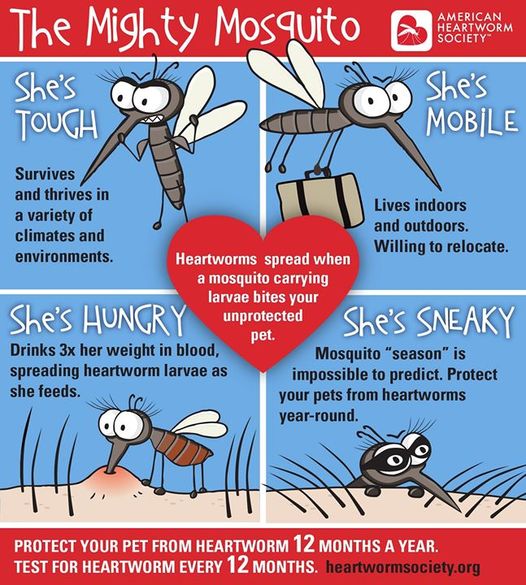
INDIANA—It’s Heartworm Awareness Month. Prevention is more economical and manageable for your pet than treatment. Ask your veterinarian which preventative would be best for your pet.

If left untreated, heartworm can be fatal or cause lasting health issues. Some signs your pet may have heartworm are:
- Seeming breathless or struggling to catch their breath.
- Coughing after exercise.
- Refusing to exercise or play.
- Seeming lethargic or weak.
- A bulging chest cavity.
- Unintentional weight loss.
- Loss of appetite.
- Irregular heartbeat.
- Coughing up blood.
Although heartworms tend to prefer the blood vessels of the heart and lungs, in severe infestations, they can migrate to your dog’s brain. If this happens, he may become unable to see properly, seem dazed or confused, experience seizures, or collapse.
Many FDA-approved products are used to prevent heartworms in pets. All require a veterinarian’s prescription. Most products are given monthly, either as a topical liquid applied to the skin or as an oral tablet. Both chewable and non-chewable oral tablets are available.



